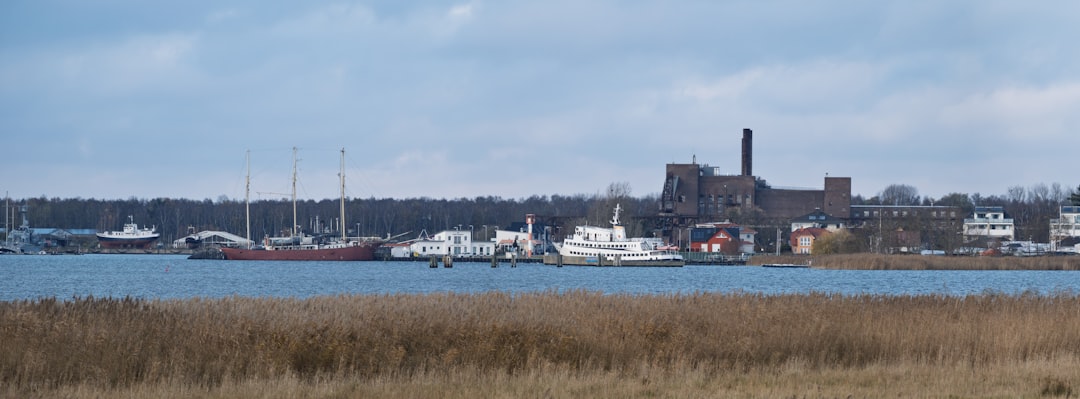The water industry plays a crucial role in sustaining life and supporting economic development across the globe. Water is not merely a resource; it is the foundation upon which societies are built. From agriculture to industry, and from sanitation to drinking water, the availability and management of water resources are essential for public health and environmental sustainability.
The water industry encompasses a wide range of activities, including the extraction, treatment, distribution, and management of water resources. Its significance cannot be overstated, as it directly impacts the quality of life for billions of people. Moreover, the water industry is integral to addressing some of the most pressing challenges of the 21st century, such as climate change, population growth, and urbanization.
As cities expand and populations increase, the demand for clean water continues to rise. This necessitates innovative solutions and efficient management practices to ensure that water remains accessible and safe for all. The importance of the water industry extends beyond mere supply; it also involves safeguarding ecosystems and promoting sustainable practices that can withstand the test of time.
Key Takeaways
- The water industry is crucial for sustaining life and supporting global development.
- Innovation plays a key role in addressing challenges and improving water management.
- Environmental impacts of water usage require careful consideration and sustainable practices.
- Community engagement and human connection are vital for effective water solutions.
- Storytelling and expert insights help raise awareness and drive progress in the water sector.
Behind the Scenes of Flowing Forward
Flowing Forward is an initiative that exemplifies the dedication and innovation present within the water industry. Behind its success lies a network of professionals who work tirelessly to ensure that clean water reaches communities in need. Engineers, scientists, and environmentalists collaborate to develop cutting-edge technologies and strategies that enhance water quality and accessibility.
Their efforts often go unnoticed, yet they are the backbone of this vital industry, ensuring that systems function smoothly and efficiently. The initiative also emphasizes the importance of education and awareness in promoting responsible water usage. By engaging with communities and providing resources on water conservation, Flowing Forward aims to foster a culture of sustainability.
This behind-the-scenes work is essential for creating a future where water is not only abundant but also managed wisely. The commitment to transparency and community involvement sets Flowing Forward apart as a leader in the water industry, showcasing how collective efforts can lead to significant advancements in water management.
Challenges Faced by the Water Industry

Despite its critical importance, the water industry faces numerous challenges that threaten its ability to provide safe and reliable water supplies. One of the most pressing issues is aging infrastructure. Many cities around the world rely on outdated pipes and treatment facilities that are prone to leaks and contamination.
This not only compromises water quality but also leads to significant financial losses due to wasted resources. Addressing these infrastructure challenges requires substantial investment and innovative solutions to modernize systems while minimizing disruption to communities. Another significant challenge is climate change, which has far-reaching implications for water availability and quality.
Extreme weather events, such as droughts and floods, can disrupt water supply systems and lead to contamination of freshwater sources.
The water industry must adapt to these changing conditions by implementing resilient practices that can withstand environmental fluctuations while ensuring equitable access to clean water for all.
The Role of Innovation in the Water Industry
| Innovation Area | Metric | Impact on Water Industry | Example Technologies |
|---|---|---|---|
| Water Treatment | Reduction in Contaminants (%) | Improves water quality and safety for consumers | Membrane Filtration, UV Disinfection |
| Water Conservation | Decrease in Water Usage (%) | Reduces water waste and promotes sustainable use | Smart Meters, Leak Detection Sensors |
| Wastewater Management | Increase in Recycled Water Volume (million liters/day) | Enhances reuse and reduces environmental pollution | Advanced Biological Treatment, Anaerobic Digestion |
| Infrastructure Monitoring | Reduction in Pipe Breaks (%) | Improves reliability and reduces maintenance costs | IoT Sensors, Predictive Analytics |
| Energy Efficiency | Energy Consumption Reduction (%) | Decreases operational costs and carbon footprint | Energy-efficient Pumps, Renewable Energy Integration |
Innovation is at the heart of progress in the water industry, driving advancements that enhance efficiency and sustainability. New technologies, such as smart meters and advanced filtration systems, are revolutionizing how water is managed and consumed. These innovations not only improve the quality of water but also empower consumers to monitor their usage and make informed decisions about conservation.
By harnessing data analytics and IoT (Internet of Things) technologies, the industry can optimize resource allocation and reduce waste. Furthermore, research into alternative water sources, such as desalination and wastewater recycling, is gaining momentum as traditional freshwater supplies become increasingly strained. These innovative approaches offer promising solutions to meet growing demands while minimizing environmental impact.
The integration of renewable energy sources into water treatment processes also exemplifies how innovation can lead to more sustainable practices within the industry. As new ideas continue to emerge, the potential for transformative change in the water sector remains vast.
Environmental Impact of the Water Industry
The environmental impact of the water industry is multifaceted, encompassing both positive contributions and significant challenges. On one hand, effective water management practices can lead to improved ecosystem health by maintaining natural habitats and supporting biodiversity. Sustainable practices, such as rainwater harvesting and responsible irrigation techniques, help preserve local ecosystems while ensuring that communities have access to necessary resources.
Conversely, the extraction and treatment of water can also have detrimental effects on the environment. Over-extraction from rivers and aquifers can lead to habitat destruction and reduced biodiversity. Additionally, pollution from industrial processes can contaminate freshwater sources, posing risks to both human health and aquatic life.
The industry must navigate these complexities by implementing strategies that prioritize environmental stewardship while meeting human needs for clean water.
The Future of Water Industry

Looking ahead, the future of the water industry is poised for transformation driven by technological advancements and a growing emphasis on sustainability. As global populations continue to rise, innovative solutions will be essential in addressing increasing demands for clean water. The integration of artificial intelligence and machine learning into water management systems holds promise for optimizing resource allocation and predicting future needs based on consumption patterns.
Moreover, public awareness regarding water conservation is on the rise, prompting communities to take an active role in managing their resources. This shift towards community-driven initiatives will likely shape the future landscape of the water industry, fostering collaboration between stakeholders at all levels. As societies become more engaged in sustainable practices, there is potential for significant progress in achieving equitable access to clean water for all.
Interviews with Industry Experts
To gain deeper insights into the evolving landscape of the water industry, interviews with industry experts reveal a wealth of knowledge and experience. These professionals emphasize the importance of collaboration across sectors—government agencies, private companies, non-profits, and local communities must work together to address challenges effectively. They highlight that innovative solutions often arise from diverse perspectives coming together to tackle complex issues.
Experts also stress the need for ongoing education and training within the workforce to keep pace with technological advancements. As new tools and methodologies emerge, continuous learning will be essential for professionals in the field to remain effective in their roles. By fostering a culture of knowledge-sharing and collaboration, the industry can better prepare itself for future challenges while ensuring that best practices are disseminated widely.
The Global Reach of Flowing Forward
Flowing Forward has established itself as a global leader in promoting sustainable water practices across various regions. Its initiatives extend beyond local communities; they encompass international partnerships aimed at addressing global water challenges. By collaborating with organizations worldwide, Flowing Forward seeks to share knowledge and resources that can be adapted to different cultural contexts.
The global reach of Flowing Forward underscores the interconnectedness of water issues across borders. Water scarcity is not confined to specific regions; it is a challenge faced by many countries worldwide. Through its outreach efforts, Flowing Forward aims to raise awareness about these shared challenges while promoting solutions that can be implemented on a larger scale.
This collaborative approach fosters a sense of unity among nations as they work together towards a common goal: ensuring access to clean water for all.
Community Engagement in the Water Industry
Community engagement is a cornerstone of effective water management practices. Flowing Forward recognizes that local communities are often best positioned to understand their unique challenges related to water access and quality. By involving residents in decision-making processes, initiatives can be tailored to meet specific needs while fostering a sense of ownership among community members.
Engagement efforts may include educational programs that teach residents about conservation techniques or workshops that encourage participation in local clean-up efforts. By empowering communities with knowledge and resources, Flowing Forward aims to create lasting change that extends beyond immediate solutions. This grassroots approach not only enhances community resilience but also cultivates a culture of stewardship towards local water resources.
The Human Connection to Water
Water is more than just a resource; it is deeply intertwined with human experiences and cultural identities. From rituals surrounding its use in various cultures to its role in shaping landscapes where communities thrive, water holds profound significance in people’s lives. Understanding this human connection is essential for developing effective policies and practices within the water industry.
Flowing Forward recognizes that storytelling plays a vital role in highlighting these connections. By sharing narratives about individuals’ experiences with water—whether it be overcoming challenges related to access or celebrating cultural traditions—Flowing Forward aims to foster empathy and understanding among diverse audiences. These stories serve as powerful reminders of why equitable access to clean water matters not just as a statistic but as a fundamental human right.
The Power of Storytelling in Flowing Forward
Storytelling serves as an invaluable tool for raising awareness about critical issues within the water industry. Flowing Forward harnesses this power by sharing compelling narratives that resonate with audiences on an emotional level. Through videos, articles, and social media campaigns, they highlight real-life experiences that illustrate both challenges faced by communities and successes achieved through innovative solutions.
These stories not only inform but also inspire action among individuals who may feel disconnected from broader discussions about water management. By personalizing complex issues through relatable narratives, Flowing Forward encourages people to engage with their local environments actively. This approach fosters a sense of responsibility towards preserving precious resources while promoting collective efforts toward sustainable practices within communities.
In conclusion, the importance of the water industry cannot be overstated; it is essential for human survival and environmental sustainability alike. Initiatives like Flowing Forward exemplify how innovation, community engagement, and storytelling can drive meaningful change within this vital sector.
In exploring the complexities of the water industry, the documentary sheds light on various challenges and innovations within this vital sector. For further insights, you can read a related article that delves into the intricacies of water management and its impact on communities at Hey Did You Know This. This resource provides valuable information that complements the themes presented in the documentary, making it a worthwhile read for anyone interested in understanding the significance of water in our lives.
WATCH THIS! The $400 Billion Water Lie: Why Bottled Water Is a Scam
FAQs
What is the focus of a documentary about the water industry?
A documentary about the water industry typically explores the processes involved in sourcing, treating, distributing, and managing water resources. It may cover topics such as water supply infrastructure, water quality, environmental impacts, and challenges related to water scarcity and sustainability.
Why is the water industry important?
The water industry is crucial because it ensures the availability of clean and safe water for drinking, agriculture, sanitation, and industrial use. It plays a vital role in public health, economic development, and environmental protection.
What topics are commonly covered in water industry documentaries?
Common topics include water treatment technologies, water conservation efforts, the impact of pollution on water sources, the effects of climate change on water availability, water rights and policies, and innovations in water management.
Who typically produces documentaries about the water industry?
Documentaries about the water industry are often produced by environmental organizations, educational institutions, independent filmmakers, and media companies interested in raising awareness about water-related issues.
How can watching a documentary about the water industry benefit viewers?
Viewers can gain a better understanding of the complexities of water management, the importance of conserving water resources, and the global challenges related to water access and quality. This knowledge can inspire informed decision-making and advocacy for sustainable water practices.
Are there any notable documentaries about the water industry?
Yes, several documentaries have gained recognition for their in-depth coverage of water issues. Examples include “Flow: For Love of Water,” “Tapped,” and “Blue Gold: World Water Wars,” which explore various aspects of water scarcity, privatization, and environmental impact.
What challenges does the water industry face that might be highlighted in a documentary?
Challenges include aging infrastructure, pollution, over-extraction of groundwater, climate change effects, unequal access to clean water, regulatory hurdles, and conflicts over water rights.
Can documentaries about the water industry influence public policy?
Yes, documentaries can raise public awareness and influence policymakers by highlighting critical water issues, encouraging community engagement, and promoting sustainable water management practices.
